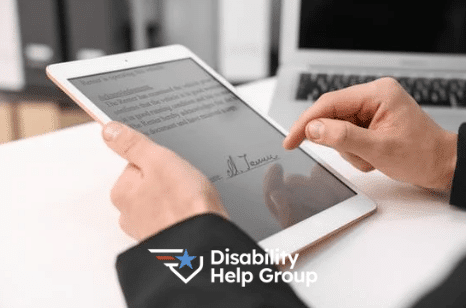Can You Work While Receiving Social Security Disability Benefits?
The short answer is “it’s complicated.” You can both qualify for SSDI and continue receiving benefits with some income from work. But, there are limits, and ensuring that you don’t lose eligibility can be complicated. The first step is understanding that the standards applied during the application process and the yardstick used for those receiving disability benefits are different. Income is assessed differently when you’re applying for disability benefits than it is when you’re receiving benefits. Here’s a high-level look at how your income will be assessed at each stage.
Getting Approved for SSDI While Working
To qualify for Social Security disability benefits, you must show that you are unable to engage in “substantial gainful activity (SGA).” The Social Security Administration generally considers anyone earning more than a specific amount to be engaged in SGA. That number changes every year.
For 2023, the SGA cut-off will be $1,470 per month for most applicants. For applicants who are blind, the cut-off is increased to $2,460 per month. This limit applies only to earned income. Other types of income, such as investment income, trust income, and other non-work income has no effect on SSDI eligibility.
It’s important to note that these numbers are pre-tax. In other words, SSA is looking at your gross income, not the net amount you receive after deductions.
The Cut-Off for SSI Benefits is Different
Unlike SSDI, eligibility for SSI benefits depends in part on financial need. That means all income counts, earned or not. And, the earning cut-off is lower. For 2023, the maximum monthly income from all sources is $914.
Working While on SSDI
You can work while you’re receiving Social Security disability benefits under the SSDI program. But, it’s important to fully understand your obligations, and how your income will be treated. Here’s an overview of what you need to know:
- You must report any income from work to the SSA when you are receiving SSDI benefits
- Any month in which you earn more than the current limit will be treated as a “trial work month”
- For 2023, that limit is $1,050 per month
- As long as you’re otherwise qualified and you report your earnings, you will continue to receive benefits in trial work months
- If you have nine trial work months within a 60-month period, you transition to an extended eligibility period
- During your 36-month extended eligibility period, you can still get SSDI benefits–but only in the months when you earn less than the SGA threshold explained above
- If your benefits stop due to substantial earnings but you’re unable to keep working because of your condition, you have five years to restart your benefits without a new application or medical review
Here, too, SSA is looking at gross income and not the net amount you bring home.
If you return to work after receiving SSDI, your Medicare benefits will continue for at least 93 months after your trial work period. If eligibility runs out, you can purchase continuing Medicare coverage.
Working While on SSDI Requires Careful Management
SSA’s work incentives and Ticket to Work program offer an opportunity for those on SSDI to supplement their income as they are able, and provide a safety net for those trying to return to work. But, with reporting requirements, cumulative trial work months, and changing income thresholds, it’s easy to make a mistake.
If you run into trouble, Disability Help Group is here for you. Our team was founded by experienced disability experts who have been representing the disabled for over 15 years. Disability Help Group understands how to work with the Social Security Administration and Veterans’ Affairs in the best interest of the disabled person. Contact us or call (800) 800-3332 to talk to a seasoned disability advocate.







